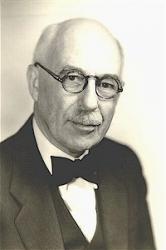Planning worship?
Check out our sister site, ZeteoSearch.org,
for 20+ additional resources related to your search.
- |
User Links
Person Results
Ludwig van Beethoven

1770 - 1827 Person Name: Ludwig van Beethoven, 1770-1827 Composer of "SARDIS" in The Cyber Hymnal A giant in the history of music, Ludwig van Beethoven (b. Bonn, Germany, 1770; d. Vienna, Austria, 1827) progressed from early musical promise to worldwide, lasting fame. By the age of fourteen he was an accomplished viola and organ player, but he became famous primarily because of his compositions, including nine symphonies, eleven overtures, thirty piano sonatas, sixteen string quartets, the Mass in C, and the Missa Solemnis. He wrote no music for congregational use, but various arrangers adapted some of his musical themes as hymn tunes; the most famous of these is ODE TO JOY from the Ninth Symphony. Although it would appear that the great calamity of Beethoven's life was his loss of hearing, which turned to total deafness during the last decade of his life, he composed his greatest works during this period.
Bert Polman
Ludwig van Beethoven
Felix Mendelssohn-Bartholdy

1809 - 1847 Person Name: Mendelssohn Composer of "TRUST" in Worship and Song. (Rev. ed.) Felix Mendelssohn-Bartholdy (b. Hamburg, Germany, 1809; d. Leipzig, Germany, 1847) was the son of banker Abraham Mendelssohn and the grandson of philosopher Moses Mendelssohn. His Jewish family became Christian and took the Bartholdy name (name of the estate of Mendelssohn's uncle) when baptized into the Lutheran church. The children all received an excellent musical education. Mendelssohn had his first public performance at the age of nine and by the age of sixteen had written several symphonies. Profoundly influenced by J. S. Bach's music, he conducted a performance of the St. Matthew Passion in 1829 (at age 20!) – the first performance since Bach's death, thus reintroducing Bach to the world. Mendelssohn organized the Domchor in Berlin and founded the Leipzig Conservatory of Music in 1843. Traveling widely, he not only became familiar with various styles of music but also became well known himself in countries other than Germany, especially in England. He left a rich treasury of music: organ and piano works, overtures and incidental music, oratorios (including St. Paul or Elijah and choral works, and symphonies. He harmonized a number of hymn tunes himself, but hymnbook editors also arranged some of his other tunes into hymn tunes.
Bert Polman
Felix Mendelssohn-Bartholdy
James Arnold Blaisdell

1867 - 1957 Person Name: Rev. James A. Blaisdell Author of "Christians, lo! the star appeareth" in Christian Song James Arnold Blaisdell was born in Beloit, Wisconsin, December 15, 1867. He graduated from Beloit College in 1899 and became a minister, then returned to Beloit College as Chair of the Bible Department and director of the library. In 1910 he became of Pomona College (California). The college grew under his leadership. In 1921 he made the decision to cap enrollment to keep the college small. He soon developed the vision of small liberal arts colleges sharing common facilities. He became head of the Claremont Colleges Consortium in 1927.
Dianne Shapiro, from Anderson, Seth. "James Blaisdell-The Visionary". Claremont Conversation. Archived from the original on 2007-09-28 (https://web.archive.org/web/20070928024653/http://claremontconversation.org/tcourse/tndy4010/page/James+Blaisdell-The+Visionary) and Find A Grave website (retrieved 11/11/2023)
James Arnold Blaisdell
John Bacchus Dykes

1823 - 1876 Person Name: J. B. Dykes Composer of "ST. OSWALD" in Hymns of the Widening Kingdom As a young child John Bacchus Dykes (b. Kingston-upon-Hull' England, 1823; d. Ticehurst, Sussex, England, 1876) took violin and piano lessons. At the age of ten he became the organist of St. John's in Hull, where his grandfather was vicar. After receiving a classics degree from St. Catherine College, Cambridge, England, he was ordained in the Church of England in 1847. In 1849 he became the precentor and choir director at Durham Cathedral, where he introduced reforms in the choir by insisting on consistent attendance, increasing rehearsals, and initiating music festivals. He served the parish of St. Oswald in Durham from 1862 until the year of his death. To the chagrin of his bishop, Dykes favored the high church practices associated with the Oxford Movement (choir robes, incense, and the like). A number of his three hundred hymn tunes are still respected as durable examples of Victorian hymnody. Most of his tunes were first published in Chope's Congregational Hymn and Tune Book (1857) and in early editions of the famous British hymnal, Hymns Ancient and Modern.
Bert Polman
John Bacchus Dykes


 My Starred Hymns
My Starred Hymns

